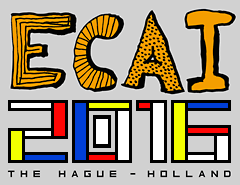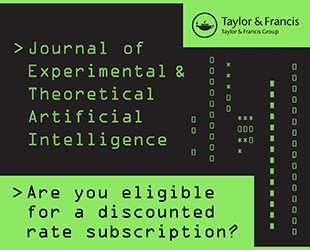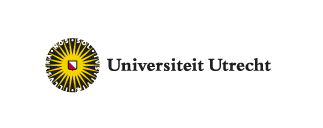For details about the programs of the workshops, tutorials on Monday and Tuesday and the main conference on Wednesday to Friday, please visit their respective sites.

Artificial Intelligence: it’s not about the destination, it’s about the journey
Monday, 9:45 – 10:45
Frank van Harmelen
VU University Amsterdam, The Netherlands
Abstract
Artificial Intelligence research suffers from an extreme horizon effect. Our definition of intelligence is has always shifted away from us: as soon as a computer could do it, it was no longer considered intelligent. What will the future horizons in AI be, and will they continue to shift away from us? And with these ever shifting goals, what is actually the goal of our journey? I’ll argue that the goal of AI research is not to build an AI. Instead, our real goal is (or: should be) to gain a better understanding of the information universe. And such a different view on the goal of AI has a radical impact on our daily research practice.
Bio (click to show)

Frank van Harmelen
VU University Amsterdam, The Netherlands
Abstract
Frank van Harmelen is professor in Knowledge Representation and Reasoning at the VU University Amsterdam. He has been involved in the Semantic Web research programme since it’s inception in the late ’90s. He is one of the co-designers of the W3C ontology representation language OWL, and was involved in the design of Sesame, one of the most widely used RDF repositories world wide. He is co-author of the Semantic Web Primer, the first textbook on Semantic Web technologies, now translated into 5 languages. He was scientific director of the Large Knowledge Collider (LarKC), which aimed to build a platform for very large scale distributed reasoning. Besides research into the fundamental questions such as inconsistency, scalability, heterogeneity, and dynamicity, he is also involved in a wide variety of applications of semantic technologies, among others in medicine, the pharmaceutical industry, scientific publishing and e-science. His work on the Sesame triplestore received the 2012 “ISWC 10 year impact award”, and he was elected member of the European Academy of Science in 2014.
Planning and Robot Collaboration
Monday, 11:15 – 12:30
Papers:
- Online proactive planning with multiple hypotheses. Jorrit T’Hooft, Charles Lesire and Caroline P. Carvalho Chanel
- Formal and Data-association aware Belief Space Planning. Shashank Pathak, Sadegh Soudjani, Vadim Indelman and Alessandro Abate
- Human Robot Collaboration to Reach a Common Goal in an Assembly Process. Sharath Chandra Akkaladevi, Matthias Plasch, Andreas Pichler and Bernhard Rinner

Past, Present, and Future of AI: A Fascinating Journey
Monday, 14:00 – 15:00
Ramon Lopez de Mantaras
Artificial Intelligence Research Institute (IIIA) of the Spanish National Research Council (CSIC), Spain
Abstract
In my talk I will start by reminding the origins of AI and I will also comment on the difference between today’s specific AI and the general human-like AI that the founding fathers had in mind. Then I will also briefly review some of the most impressive results achieved along these past years. Next I will discuss some of the difficulties involved in trying to achieve general AI systems and particularly the problem of dealing with common sense knowledge. I will also advocate for the need to develop integrated AI systems, as well as the importance of embodiment, as a prerequisite to progress towards general human-like AI. Finally I will mention the importance of paying attention to developments in other fields such as biology, material sciences, or nano-technology that might have wide-ranging influences on our ideas about AI and on the machines we will build.
Bio (click to show)

Ramon Lopez de Mantaras
Artificial Intelligence Research Institute (IIIA) of the Spanish National Research Council (CSIC), Spain
Abstract
Ramon Lopez de Mantaras. Research Professor of the Spanish National Research Council (CSIC) and Director of the Artificial Intelligence Research Institute (IIIA). Master of Sciences in Computer Science from the University of California Berkeley, PhD in Physics from the University of Toulouse, and PhD in Computer Science from the Technical University of Barcelona. A pioneer of Artificial Intelligence in Spain, with contributions, since 1976, in Pattern Classification, Approximate Reasoning, Expert Systems, Machine Learning, Case-Based Reasoning, Autonomous Robots, and AI & Music. Author of 270 papers. Invited plenary speaker at numerous international conferences. Former Editor-in-Chief of Artificial Intelligence Communications, current editorial board member of several journals. Program committee member in numerous conferences. Program committee Chairman and Conference Chairman of several top AI Conferences (UAI-94, ECML’00, ECAI-04, ECML/PKDD-07, and IJCAI-07). ECCAI Fellow. Co-recipient of five best paper awards at international conferences. Recipient, among other awards, of the “City of Barcelona” Research Prize, the “2011 American Association of Artificial Intelligence (AAAI) Robert S. Engelmore Memorial Award”, the “Spanish National Computer Science Award” from the Spanish Computer Society, and the Distinguished Service Award of the European Association of Artificial Intelligence EurAI. President of the Board of Trustees of IJCAI from 2007 to 2009. He serves on a variety of panels and advisory committees for public and private institutions based in the USA and Europe. Presently working on case-based reasoning, machine learning for autonomous robots and AI applications to music. For additional information please visit: http://www.iiia.csic.es/~mantaras.
Poster Session I
Monday, 15:30 – 16:30
Papers:
- Connecting ABT with a SAT Solver. Jesus Giráldez-Cru, Guillermo Martín-Sánchez and Pedro Meseguer (S)
- Fast Subset Path Planning/ Replanning to Avoid Obstacles with Time-Varying Probabilistic Motion Patterns. Jane Jean Kiam, Matthias Gerdts and Axel Schulte (L)
- Social Media User Recommendation. Sruteesh Kumar (S)
- Anomaly Detection with a Spatio-Temporal Tracking of the Laser Spot. David Atienza, Concha Bielza, Javier Diaz and Pedro Larrañaga (S)
- Detecting Similarities in Mobility Patterns. Pietro Cottone, Marco Ortolani and Gabriele Pergola (L)
Voting, Games and Decisions
Monday, 16:30 – 17:45
Papers:
- Modeling Single-Peakedness for Votes with Ties. Zack Fitzsimmons and Edith Hemaspaandra
- Cost of Stability and Least Core in Path-Disruption Games. Victor Persien, Anja Rey and Jörg Rothe
- Solving MDPs with Unknown Rewards Regardless of User Preferences. Pegah Alizadeh, Yann Chevaleyre and François Lévy

Responsible AI
Tuesday, 9:45 – 10:45
Virginia Dignum
Delft University of Technology, The Netherlands
Abstract
In this talk, we will give an introduction to Artificial Intelligence (AI) from the perspective of responsibility. As AI becomes more sophisticated and embedded in society, we need to lay the groundwork for its responsible design and use. Two main directions are discussed: 1) codes of conduct for responsible and accountable research, design and manufacturing practice, in addition to assisting in national and international formation of policy, laws and regulations; and 2) algorithms and models for intelligent systems to reason about, and explain their decisions from a moral perspective.
Starting from the concepts of autonomy, learning, and interaction, central to AI systems, we discuss the ethical and societal implications of current developments in AI.
Bio (click to show)

Virginia Dignum
Delft University of Technology, The Netherlands
Abstract
Virginia Dignum is an Associate Professor at the Faculty of Technology Policy and Management at TU Delft. She holds a PhD from the Utrecht University, in 2014. Previously, she worked for more than 12 years in consultancy and system development in the areas of expert systems and knowledge management. Her research focuses on value-sensitive design of intelligent systems and multi-agent organisations, focussing on the formalisation of moral and normative behaviours and social interactions. In 2006, she was awarded the prestigious Veni grant from NWO (Dutch Organization for Scientific Research) for her work on agent-based organizational frameworks. She has participated and reviewed several EU and national projects, is member of the reviewing boards for the main journals and conferences in AI and has chaired many international conferences and workshops. She has published more than 180 peer-reviewed papers and several books, yielding a h-index of 27. She is secretary of the International Foundation for Autonomous Agents and Multi-agent Systems (IFAAMAS) and co-chair of the European Conference on Artificial Intelligence (ECAI) in 2016.
Knowledge, Rationality and Agents
Tuesday, 11:15 – 12:30
Papers:
- A Hybrid Approach to Commonsense Knowledge Acquisition. Christos Rodosthenous and Loizos Michael
- Curiosity-Aware Bargaining. Cédric L R Buron, Sylvain Ductor and Zahia Guessoum
- The Effect of Mobility and Emotion on Interactions in Multi-Agent Systems. Joe Collenette, Katie Atkinson, Daan Bloembergen and Karl Tuyls

Dynamic Programming on Tree Decompositions in Practice
Tuesday, 14:00 – 15:00
Stefan Woltran
Vienna University of Technology, Austria
Abstract
Many problems in Artificial Intelligence are known to be NP-hard. A recent approach to deal with intractability comes from parameterized complexity, which makes it possible to identify instances that can be solved efficiently due to inherent structural features. One prominent parameter to capture structure is treewidth, which is defined in terms of tree decompositions.
To put such theoretical tractability results into practice, dynamic programming (DP) during a traversal of a tree decomposition is the standard technique. However, the concrete implementation of suitable efficient algorithms is often tedious. Therefore we have developed a family of systems that allow the user to specify the DP algorithm in a declarative fashion and where the computation of intermediate solutions is delegated to a logic-programming system.
In this talk, we first give a brief introduction to our core system, called D-FLAT, and demonstrate its usage on some standard DP algorithms. In the second part of the talk, we reflect on some recent developments, including improvements in tree-decomposition heuristics, space-efficient storage, and a lazy variant of DP that makes use of modern Answer-Set Programming technology.
Bio (click to show)

Stefan Woltran
Vienna University of Technology, Austria
Abstract
Stefan Woltran studied Computer Science at Vienna University of Technology and received his PhD in 2003. In November 2008, he received his Habilitation in the area of “Information Systems” at the Faculty of Computer Science of the Vienna University of Technology. Since February 2015, he is Full Professor at the Database and Artificial Intelligence Group (184/2) at Vienna University of Technology. His research focuses on problems in the area of knowledge representation and reasoning, argumentation, complexity analysis in AI and logic programming. In Winter Term 2013, he held a deputy professorship at Leipzig University. In 2013, he also received the prestigious START award from the Austrian Science Fund (FWF). Further awards include the OCG-Förderpreis, an award for outstanding master theses in the field of Computer Science, and best paper awards at several conferences including RR’10, COMMA’10, and KR’12. He is steering commitee member of KR Inc. (2012-2016), COMMA, and NMR and he has been co-organizer of international conferences including COMMA’12 and KR’14. He has led several research projects funded by FWF and the Vienna Science and Technology Fund (WWTF).
Poster Session I
Tuesday, 15:30 – 16:30
Papers:
- Use of Discourse and Syntactic Features for Gender Identification. Juan Soler-Company (S)
- Nonparametric Segment Detection. Anne van Rossum, Hai Xiang Lin, Johan Dubbeldam and H.Jaap Van den Herik (S)
- Sentiment Classification of Social Media Content with Features Generated Using Topic Models. Stuart Blair, Yaxin Bi and Maurice Mulvenna (L)
- A repair operator for decomposable problems’ global solutions. Vitor Barbosa, Ana Respicio and Filipe Alvelos (L)
- Design Space Descriptions for Logical Generation of Content. Thomas Smith and Julian Padget (L)
Document Clustering and Natural Language Processing
Tuesday, 16:30 – 17:20
Papers:
- OHDOCLUS – Online and Hierarchical Document Clustering. Rui Encarnação and Hugo Gonçalo Oliveira
- Tackling the Winograd Schema Challenge Through Machine Logical Inferences. Nicos Isaak and Loizos Michael





